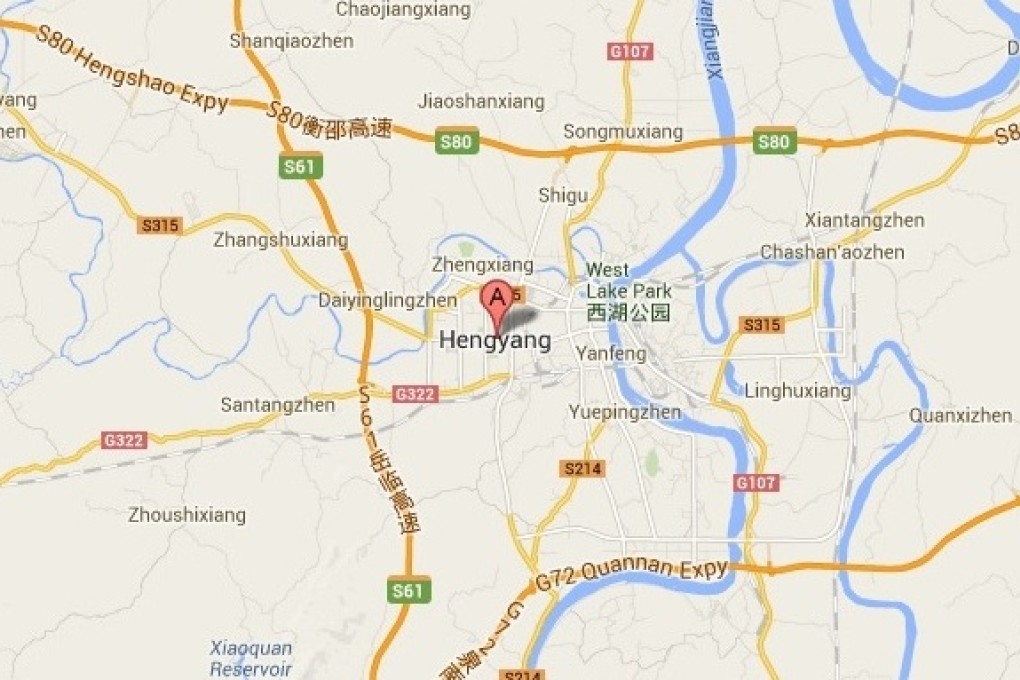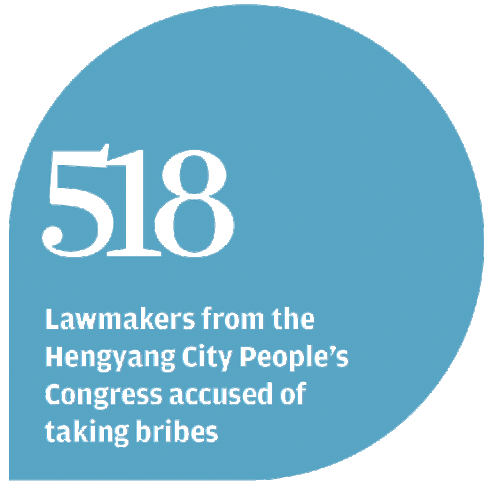Hunan city's top cadres hit in massive vote-buying case
Provincial lawmakers sacked amid allegations they bribed lower-level legislators to secure their seats include many from Hengyang's elite

Top city officials, schools administrators and corporate executives were among the more than 50 Hunan provincial lawmakers sacked as part of a massive vote-buying investigation centred on Hengyang city.

In all, 518 of 527 members of the Hengyang City People's Congress were found to have accepted bribes totalling more than 110 million yuan (HK$139 million) to help elevate the 56 people to the provincial-level body, Xinhua reported.
According to the online portal of the Shanghai-based China Business News, the sacked provincial delegates from Hengyang included: Chen Shusheng, the secretary general of the city government; Chen Susheng, the city transport director; Liu Yunkui, the city tax chief; Yang Lihui, the human resources and social welfare director; and Li Hongfang, the electric power chief.
The dismissed delegates also included educators and businesspeople from a wide range of industries, including farming, cars, health care, mining, drugs and property.
Hengyang, with a population of more than seven million, is the second-largest city in the central province.